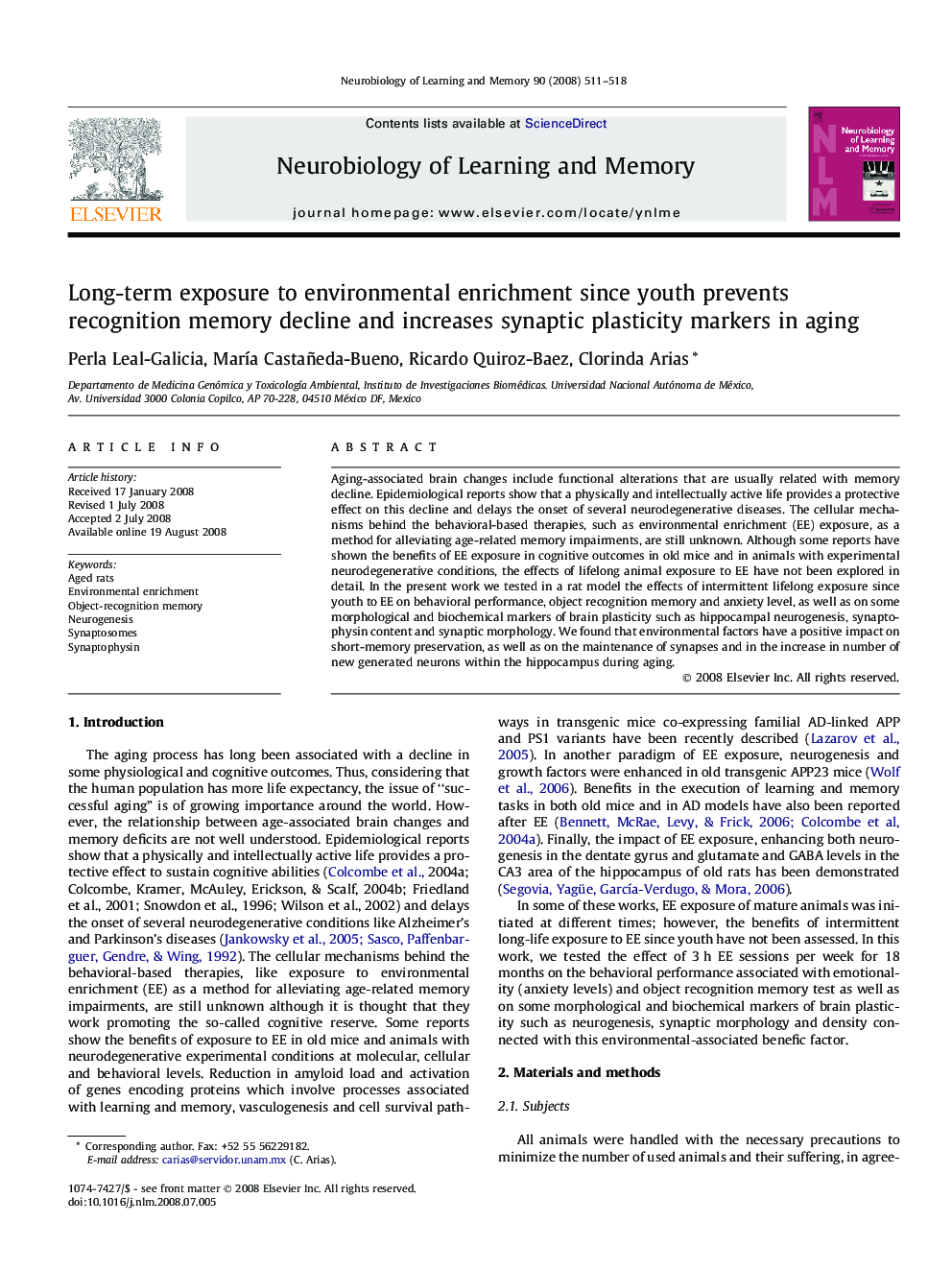| Article ID | Journal | Published Year | Pages | File Type |
|---|---|---|---|---|
| 936958 | Neurobiology of Learning and Memory | 2008 | 8 Pages |
Aging-associated brain changes include functional alterations that are usually related with memory decline. Epidemiological reports show that a physically and intellectually active life provides a protective effect on this decline and delays the onset of several neurodegenerative diseases. The cellular mechanisms behind the behavioral-based therapies, such as environmental enrichment (EE) exposure, as a method for alleviating age-related memory impairments, are still unknown. Although some reports have shown the benefits of EE exposure in cognitive outcomes in old mice and in animals with experimental neurodegenerative conditions, the effects of lifelong animal exposure to EE have not been explored in detail. In the present work we tested in a rat model the effects of intermittent lifelong exposure since youth to EE on behavioral performance, object recognition memory and anxiety level, as well as on some morphological and biochemical markers of brain plasticity such as hippocampal neurogenesis, synaptophysin content and synaptic morphology. We found that environmental factors have a positive impact on short-memory preservation, as well as on the maintenance of synapses and in the increase in number of new generated neurons within the hippocampus during aging.
